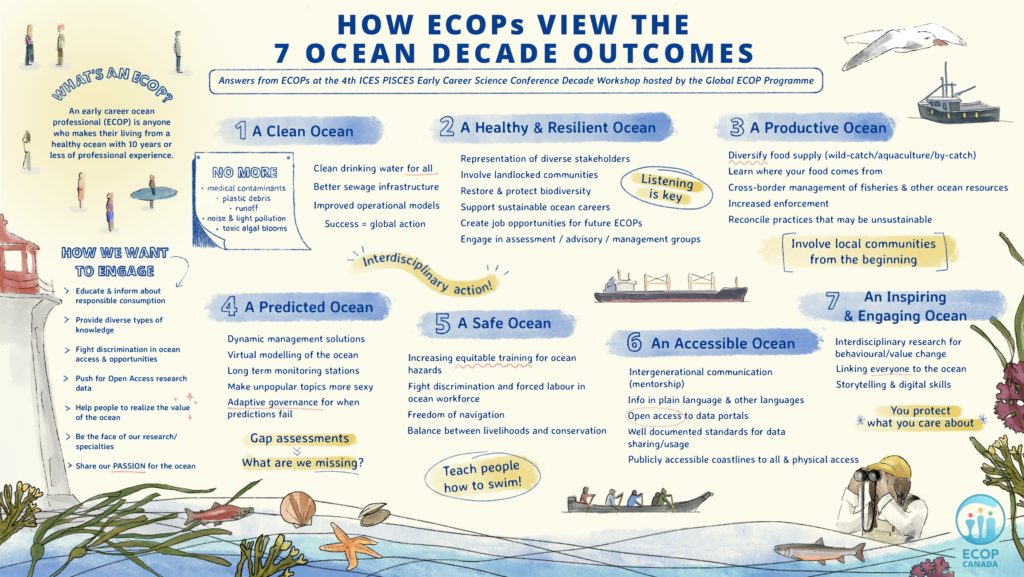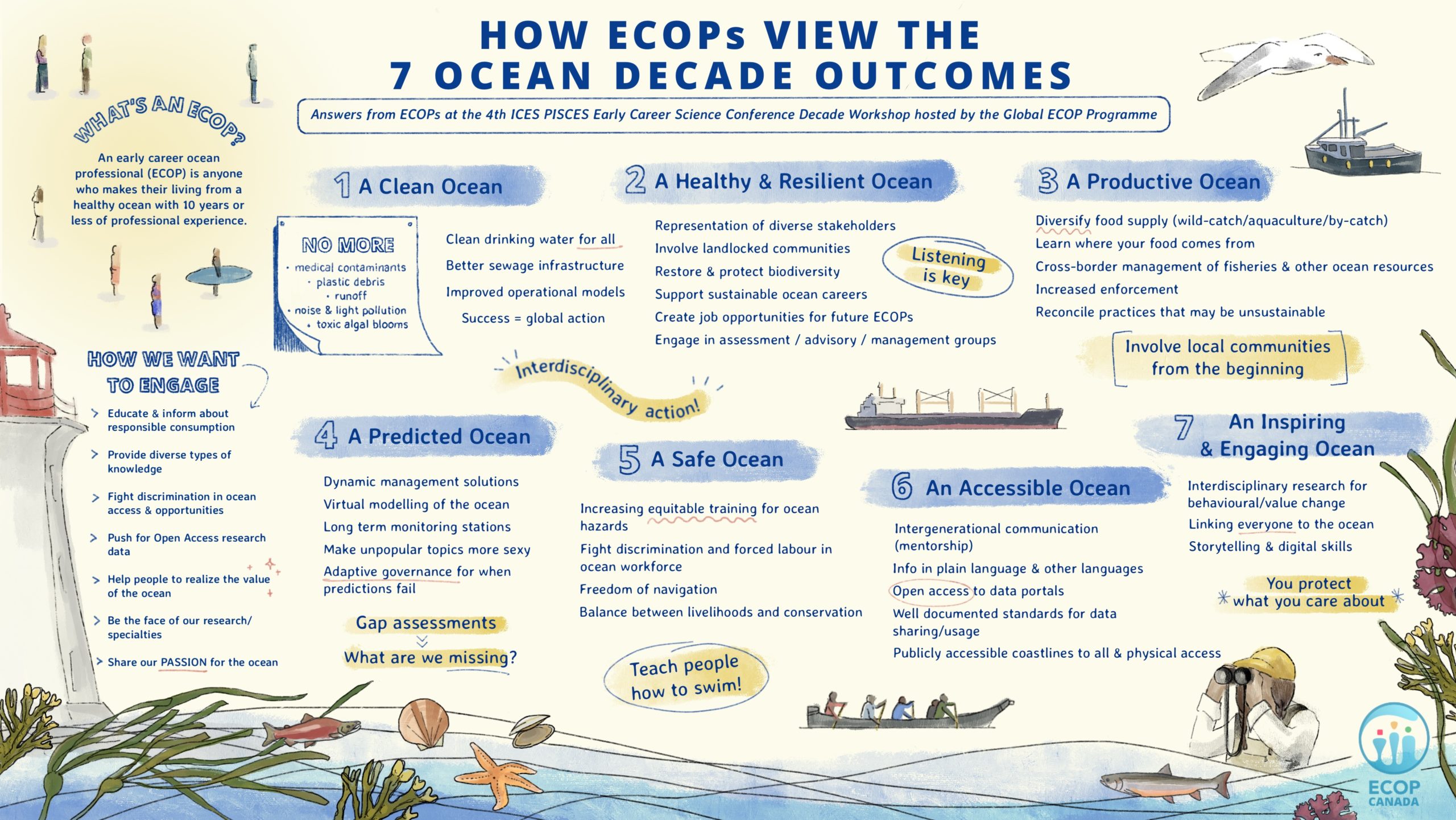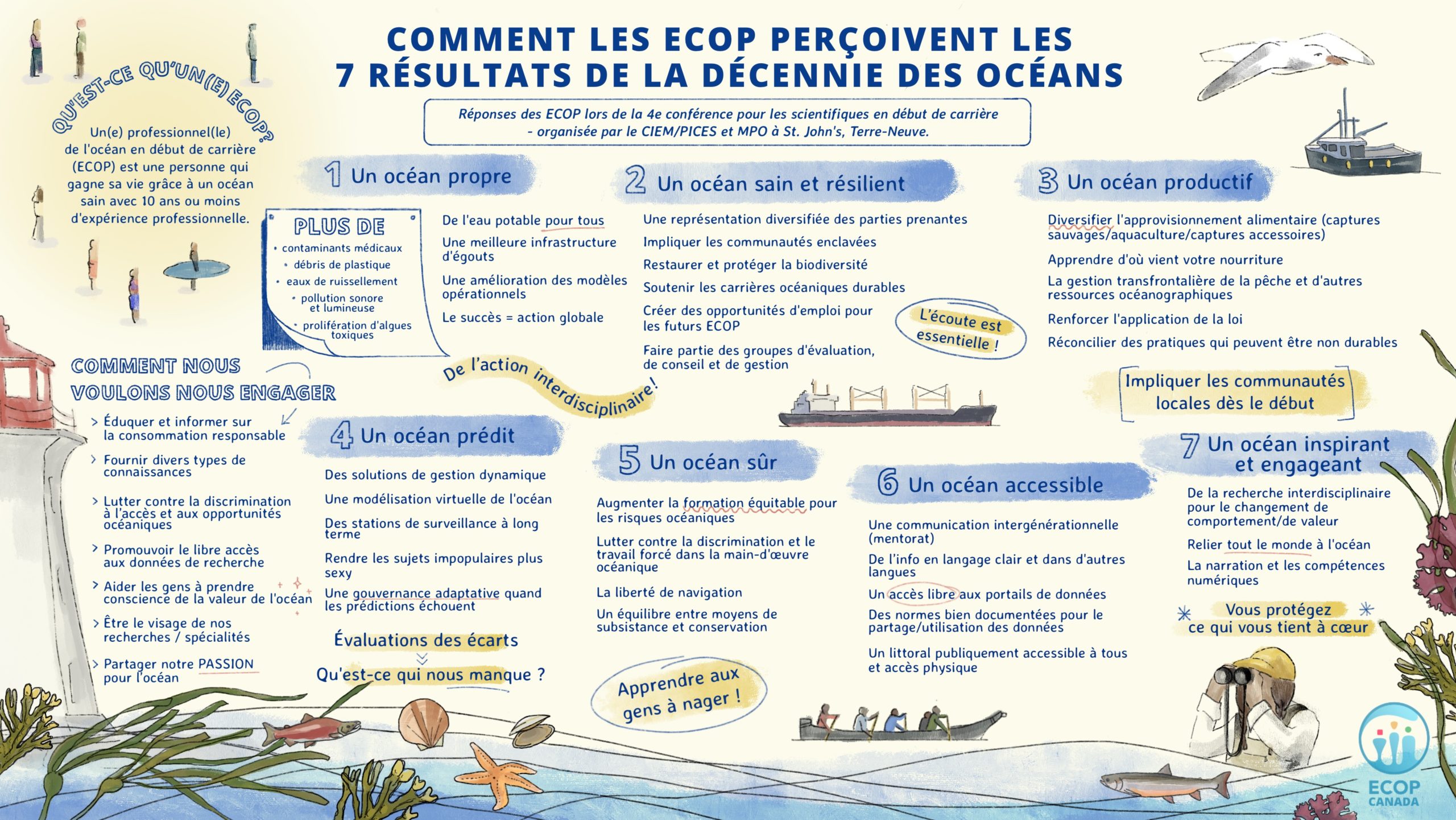Conferences are often criticized for not translating the invaluable discussions that are held into actionable information. Early Career Ocean Professionals (ECOPs) are here to change that.
The Global ECOP Programme’s participation at the Fourth ICES PICES Early Career Scientists Conference in St. John’s, Newfoundland launched the first of ECOP Canada’s interactive and networking workshops to engage early-career ocean professionals on their role in the UN Ocean Decade. ECOP Canada asked ECOPs: How do you view the 7 Ocean Decade Outcomes? What do you think needs to happen under each of the 7 outcomes to achieve the ocean we want this decade?
Participants were empowered with meaningful networking and career development opportunities in a fun and casual atmosphere (have you ever networked in a musical chairs format?). A collaborative spirit and a healthy debate on ocean topics sparked innovative solutions. ECOP Canada member, Mary Paquet incorporated these solutions into an accessible graphic to showcase the many overlapping perspectives, interests, and outcomes the international participants shared.
Since creating and hosting the workshop at ICES PICES, ECOP Canada led this networking and engaging, interactive event to gain and share further perspectives from ECOPs across Canada and internationally at ArcticNet’s ASM 2022 in Toronto, ON and Fifth International Marine Protected Areas Congress (IMPAC5) in Vancouver, BC.

How ECOPs View the 7 Ocean Decade Outcomes Graphics
Hosted in St. John’s, Newfoundland in July 2022, The Fourth ICES PICES Early Career Scientists Conference was held by the International Council for the Exploration of the Sea (ICES) and the North Pacific Marine Science Organization (PICES). It was hosted by Fisheries and Oceans Canada (DFO).
The ocean researchers present demonstrated a high level of political awareness that stimulated initiatives for ocean literacy, more Indigenous and youth representation, and education. They work in all different parts of the world, from the North Pacific and the Atlantic Ocean to the Arctic, the Mediterranean, and the Black Sea.
The workshop included a presentation of how the Global ECOP Programme is pivotal to the success of the UN Ocean Decade and included talks by each of the regional coordinators to inspire ECOPs to join or start a node in their region. It was hosted by ECOP Canada’s National Coordinator, Ashley Bowes, and the Canada Node’s co-founders, Samantha McBeth, Ronnie Nooan-Birch, and Neha Acharya-Patel, ECOP Asia’s Coordinator, Raphaël Roman, ECOP U.S. co-founder, Hannah Lachance, and ECOP Africa’s former coordinator, Gabriel A. Juma.
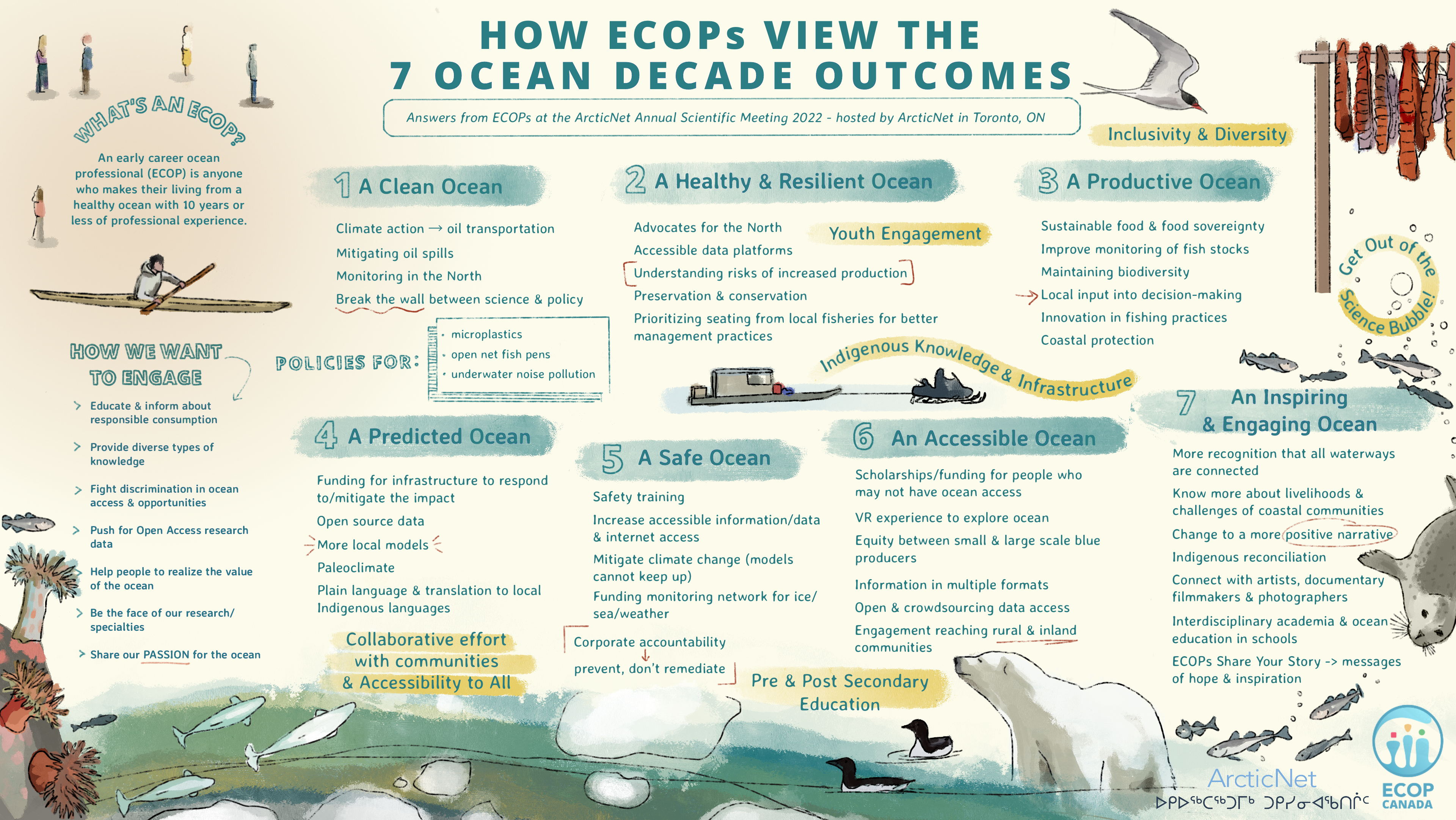
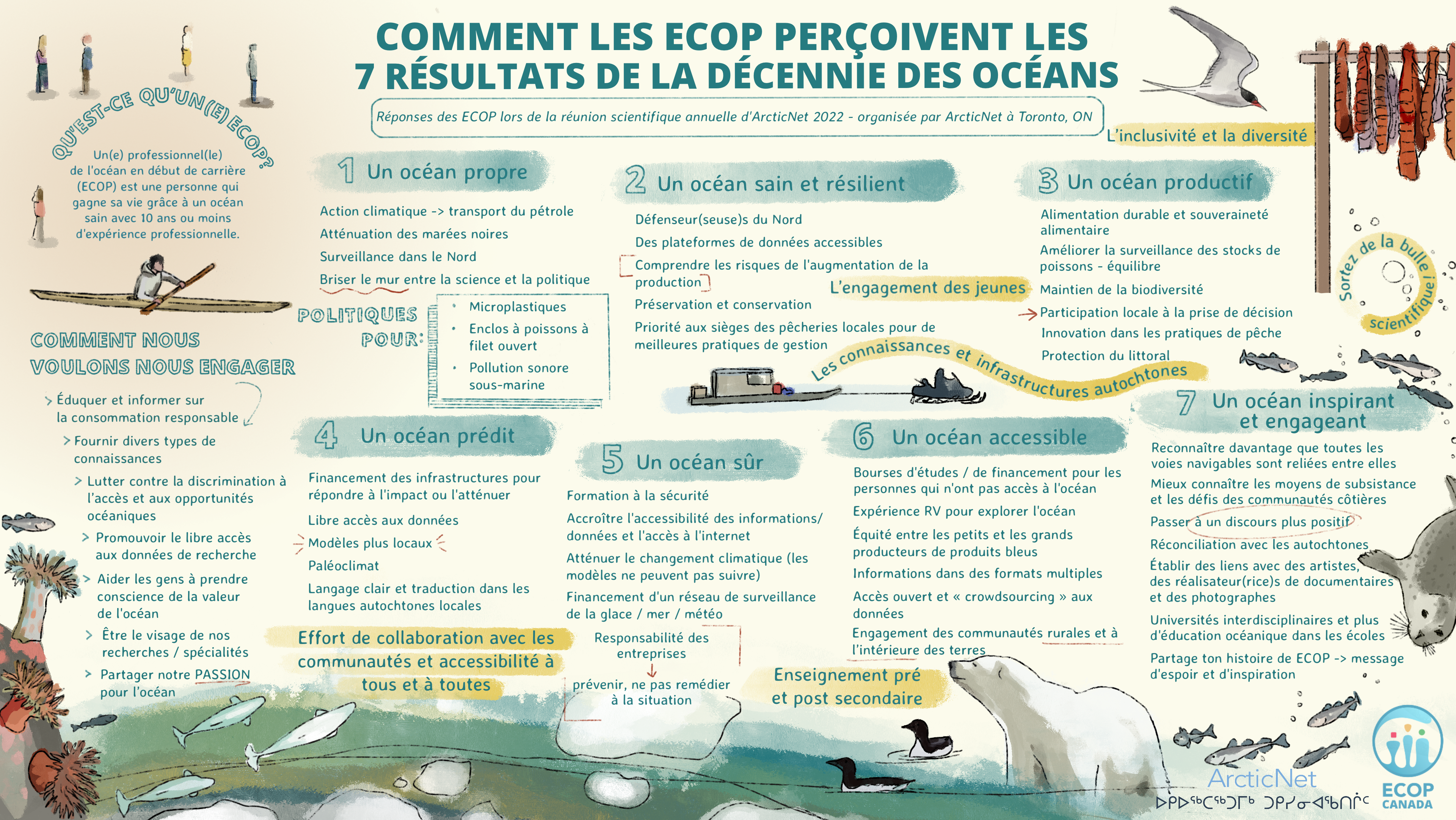
Hosted in Toronto, December 4 – 8, 2022, the ArcticNet Annual Scientific Meeting 2022 (ASM2022) is a hub for Arctic and northern research in Canada. ECOP Canada attended to engage with early career researchers who are in the Arctic or working on Arctic/Northern research from natural, health, and social sciences and to ensure that their voices are empowered and heard.
At the workshop, we engaged with a lot of folks that had no information on the Ocean Decade and informed them opportunities to participate and strengthen their voice. We collected perspectives on the Ocean Decade from around 50 early career northern researchers. The graphic uniquely captures perspectives on the Ocean Decade Outcomes relating to the Arctic – a vast northern region with a high proportion of Indigenous Peoples, and a region where ocean changes are happening at a rapid pace.
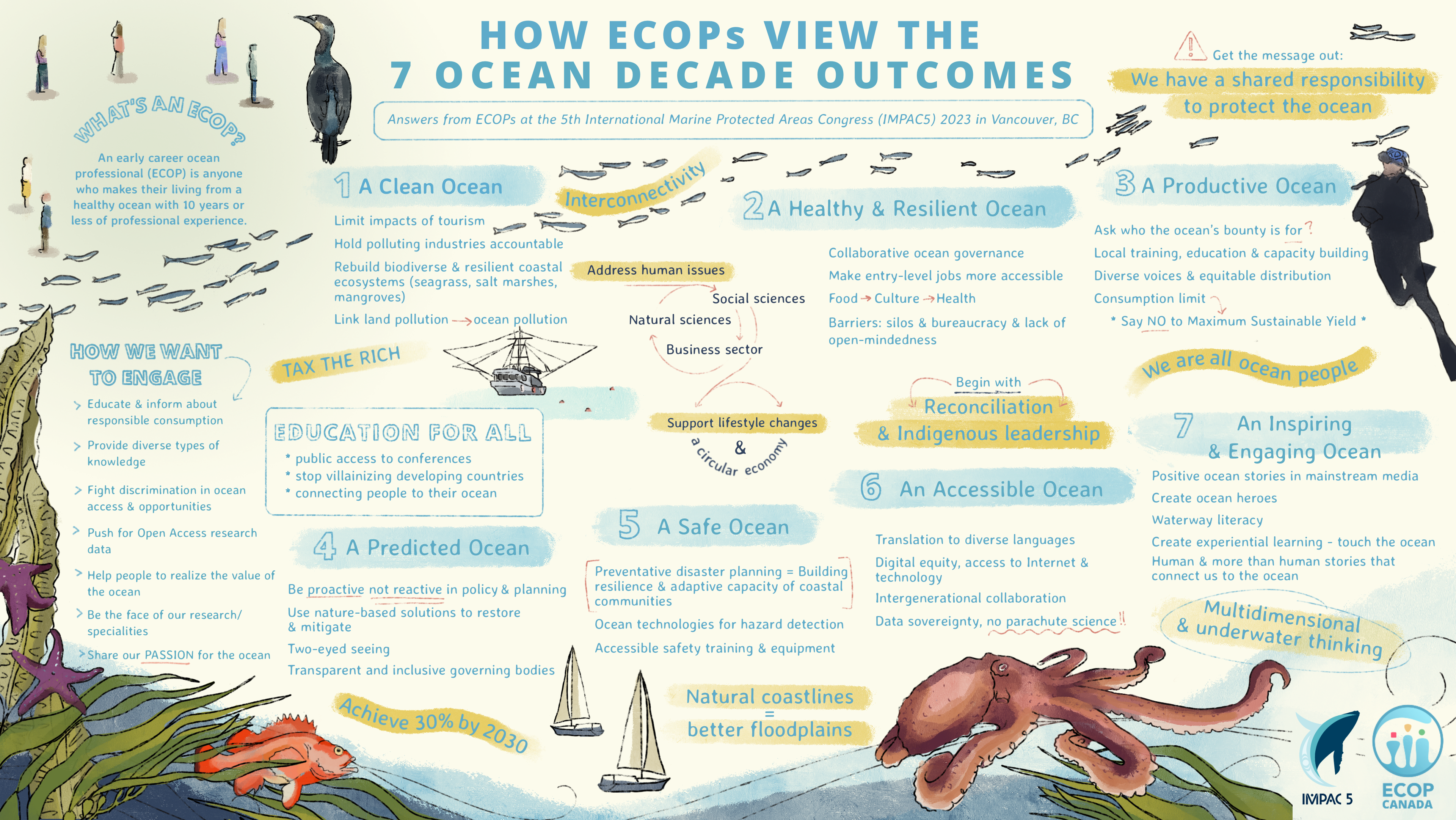
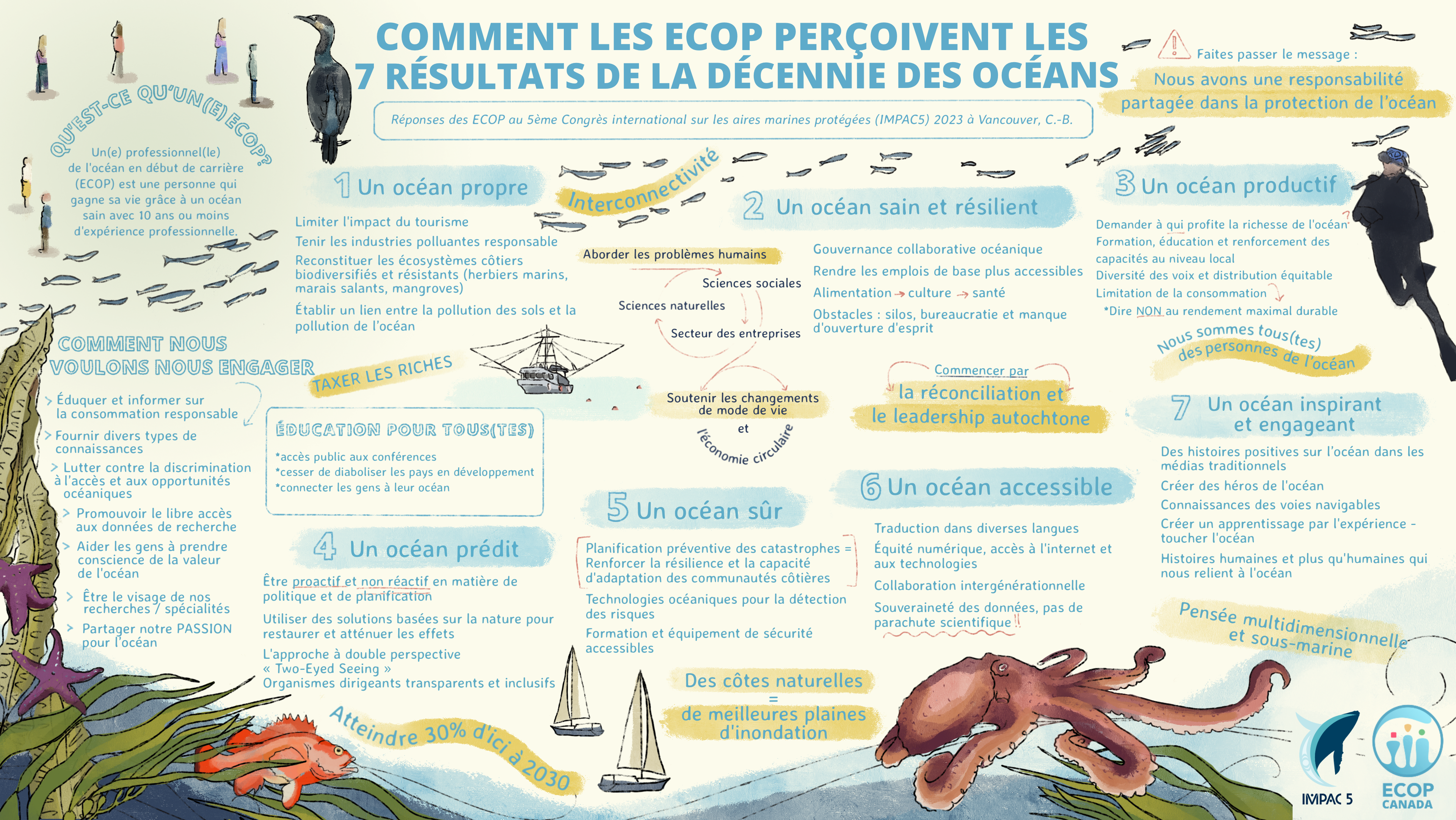
From February 3rd to 9th, ECOP Canada and the Global ECOP Programme’s inspiring community of national and international early career ocean professionals (ECOPs) and allies came together at the The 5th International Marine Protected Area Congress (IMPAC5) in Vancouver, BC. As a UN Ocean Decade endorsed programme, the ECOP Programme’s goal is to achieve intergenerational equity and include the voices of ECOPs in high-level dialogues and decisions made about the ocean’s future.
Early Career Ocean Professionals who participated in IMPAC5 both virtually and in person demonstrated to the global stage that ECOPs are already the ocean leaders we need to bring forth and take action on transformative solutions to care for and protect the ocean for every generation.
Our ECOP community, partners, high-level decision makers, and future collaborators were engaged while hearing the diverse perspectives, insights, experiences, and solutions that ECOPs bring to achieving ocean health.
Overall, many ECOPs and allies came out of their experiences at IMPAC5 feeling empowered to come together as a community to uplift each other’s work and collectively reach ambitious targets like 30×30 and solutions to meet the Ocean Decade Outcomes.
ECOP Canada’s workshop took place at the #NatureforAll Youth Archipelago and collected perspectives on the Ocean Decade from around 70 early career ocean professionals, which will be shared and amplified beyond IMPAC5.
The graphic created from the IMPAC5 ECOP workshop uniquely captures perspectives from a global cohort of ECOPs present for the International Marine Protected Area congress; highlighting a global responsibility and drive to protect the ocean.
The goal of this project is to encourage ECOPs to continue sharing their voice and increase participation during the Ocean Decade to achieve ocean health. We hope to encourage ocean organizations to include ECOPs in high-level conversations and decisions regarding the ocean’s future and intergenerational equity.
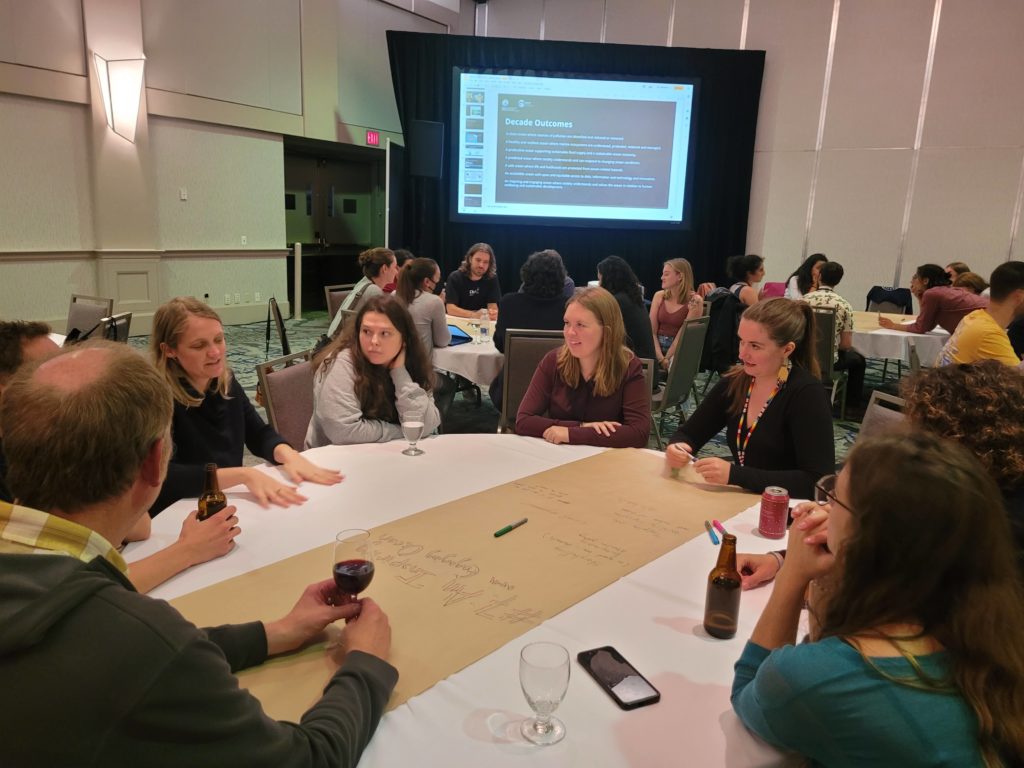
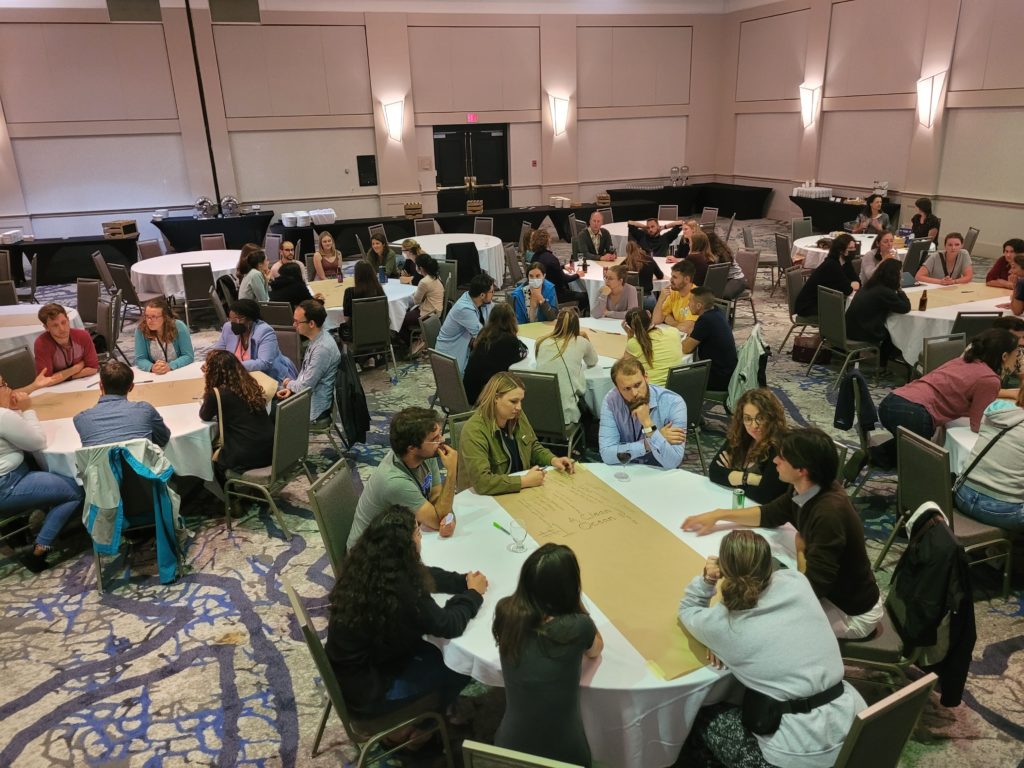
The graphic has been shared with our ocean partners such as the Decade Office within Fisheries and Oceans Canada, MEOPAR’s Ocean Decade Community of Practice, the Tula Foundation’s The Ocean Decade Collaborative Center for the Northeast Pacific, ICES/PICES, ArcticNet, IMPAC5, and other leaders and organizations who are making an impact nationally and internationally during the UN Ocean Decade.
